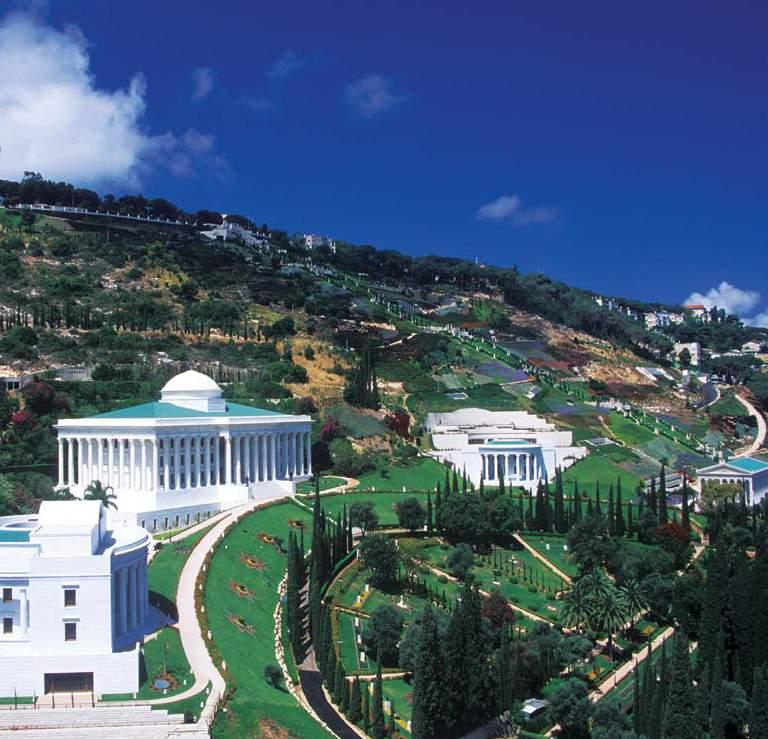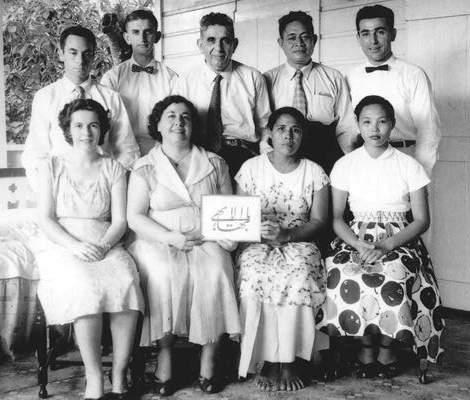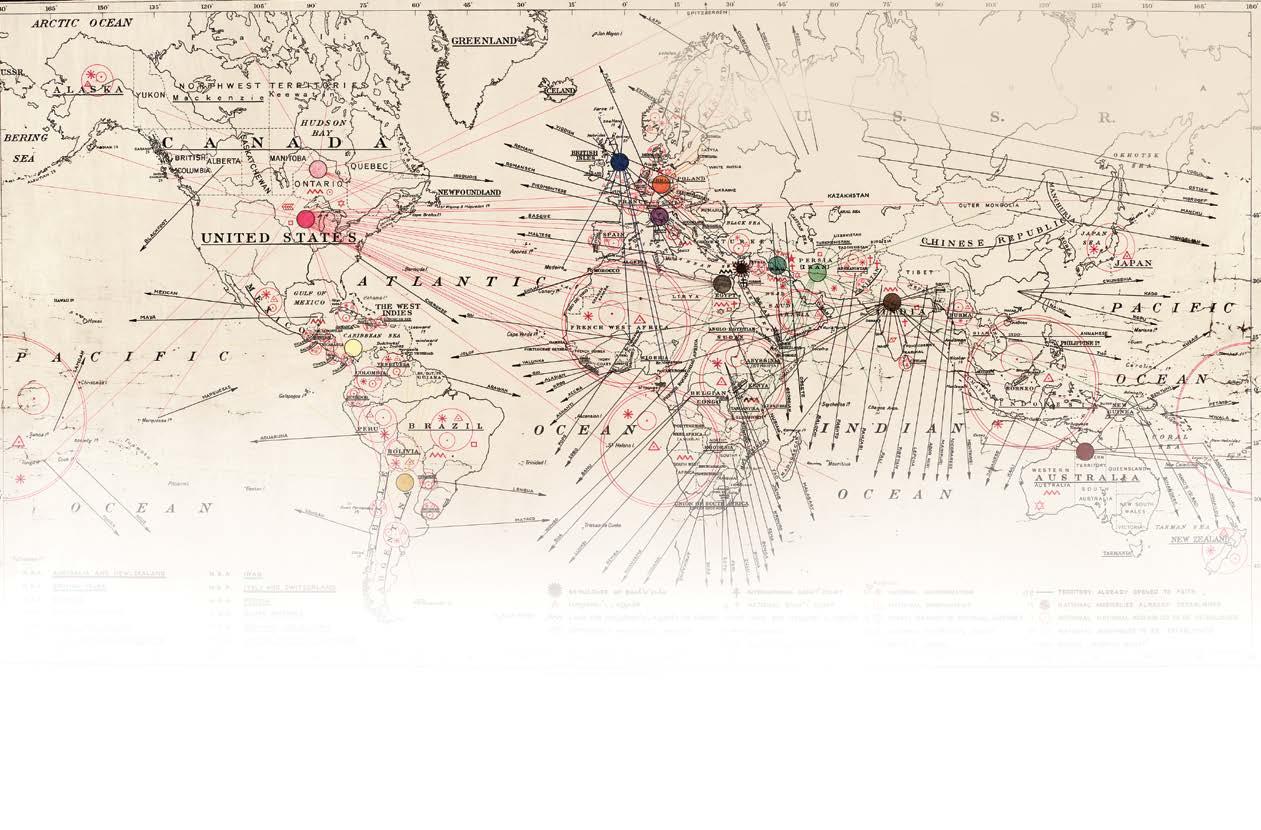
5 minute read
Appointed and elected institutions
from The Baha'is Magazine
by jbahmardi
The administrative center of the Bahá’í Faith, on Mount Carmel, Haifa, Israel Under the guidance of the Universal House of Justice, elected bodies, known as Local Spiritual Assemblies and National Spiritual Assemblies, tend to the affairs of the Bahá’í community at their respective levels, exercising legislative, executive, and judicial authority. While the Bahá’í Administrative Order places authority in elected bodies, the system also counts on the wisdom and experience of individuals.
An institution of appointed individuals of proven capacity, the Institution of the Counselors, functions under the guidance of the Universal House of Justice, nurturing the Bahá’í community from the grass roots to the international level.
Advertisement
HEADS OF THE FAITH AFTER BAHÁ’U’LLÁH’S PASSING
1892–1921 ‘Abdu’l-Bahá, Center of the Covenant
1921–1957
1963 Shoghi Effendi, Guardian of the Bahá’í Faith
Universal House of Justice first elected

The Institution of the Counselors
The Counselors are a highly diverse group of 81 men and women from around the world who inspire and enlighten Bahá’ís in the application of Bahá’u’lláh’s teachings in their everyday lives. They encourage action, foster individual initiative, and promote learning. They nurture and advise communities and Spiritual Assemblies so as to empower them to become guiding lights for society at large.
These Counselors are appointed by the Universal House of Justice every five years. They organize their work through five Continental Boards which, in turn, appoint Auxiliary Board members to serve specific geographic areas and territories. The members of the Institution of the Counselors are concerned with enhancing the capacity of the Bahá’í community to devise systematic plans of action, to execute them energetically, and to learn from their experiences. In addition, they nourish bonds of friendship and unity, promote principles and ethical standards enshrined in the Bahá’í teachings, and raise the vision of community members that they may dedicate their energies to the welfare of the human race.
The work of the Continental Boards of Counselors is guided by the nine Counselor members of the International Teaching Center, who are also appointed by the Universal House of Justice for a five-year term. This group pays particular attention to the development of human resources, helping the worldwide Bahá’í community to increase its capacity to endow growing numbers of people with the spiritual insights, knowledge, skills, and abilities required to serve humanity effectively.
The International Teaching Center at the Bahá’í World Center in Haifa, Israel

Members of National Spiritual Assemblies meet every five years at the Bahá’í World Center in Haifa, Israel, to elect the Universal House of Justice.
National Spiritual Assemblies
The responsibility of fostering the vibrancy of Bahá’í communities at the national level lies with more than 180 National Spiritual Assemblies around the world. These nine-member councils lovingly guide the activities of Bahá’í communities to strengthen their participation in the life of society.
In his writings, Shoghi Effendi, the Guardian of the Bahá’í Faith, likens the functioning of a National Spiritual Assembly to the beating of a healthy heart, “pumping spiritual love, energy and encouragement” to all members of the Bahá’í community. He writes that members of Spiritual Assemblies should “disregard utterly their own likes and dislikes, their personal interests and inclinations, and concentrate their minds upon those measures that will conduce to the welfare and happiness of the Bahá’í Community and promote the common weal.” They are to act with “extreme humility” and be known for “their open mindedness, their high sense of justice and duty, their candor, their modesty, their entire devotion to the welfare and interests of the friends, the Cause, and humanity.”
National Assemblies channel the community’s financial resources, oversee relations with government, and address questions from individuals and Local Spiritual Assemblies. In some countries, they are assisted by elected or appointed Regional Bahá’í Councils, which serve designated geographic areas.
The National Assemblies are elected annually by delegates, who are themselves elected in district or “unit” conventions. Each year, the delegates assemble at national conventions where they consult and share insights about the progress of the Bahá’í community and vote for the nine members of the National Spiritual Assembly. Every five years the members of all National Spiritual Assemblies elect the Universal House of Justice, the international governing body of the Bahá’í Faith.


Members of the first Local Spiritual Assembly formed in Samoa, 1957

Local Spiritual Assemblies
At the local level, the affairs of the Bahá’í community are administered by the elected nine-member Local Spiritual Assembly. In any town or city where at least nine adult Bahá’ís reside, a Local Assembly may be formed. The Assembly works to promote the spiritual education of children and youth. It safeguards the resources of the community and lovingly encourages the talents and energies of community members.
The Local Spiritual Assembly also organizes the Nineteen Day Feast, the cornerstone of Bahá’í community life, during which Bahá’ís gather for prayer, consultation on the affairs of the community, and fellowship. The Feast is held on the first day of every Bahá’í month. The Bahá’í calendar has 19 months of 19 days each, giving structure and rhythm to community life. The Universal House of Justice has written that, in addition to its spiritual significance, “the Feast becomes a link that connects the local community in a dynamic relationship with the entire structure of the Administrative Order.” The Feast is “an arena of democracy at the very root of society.”
The elected Assembly functions as a body and makes decisions through consultation. ‘Abdu’l-Bahá writes: “The first condition is absolute love and harmony amongst the members of the assembly. They must be wholly free from estrangement and must manifest in themselves the Unity of God.”
Elections are held each April, and Bahá’ís 21 and older are eligible to both vote and be elected. All Bahá’í elections are conducted by secret ballot and are free of nominations, electioneering, and canvassing. Bahá’ís are asked to vote in a spirit of prayer, giving consideration to the moral character and practical ability of the individuals they elect.
Members of the first Local Spiritual Assembly of the Bahá’ís of Brussels, Belgium, 1948










